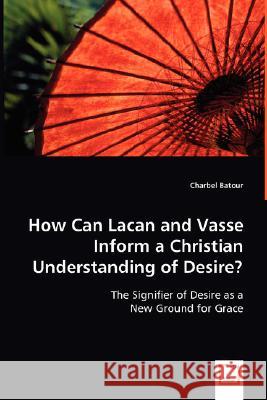How Can Lacan and Vasse Inform a Christian Understanding of Desire? » książka
How Can Lacan and Vasse Inform a Christian Understanding of Desire?
ISBN-13: 9783836493260 / Angielski / Miękka / 2008 / 424 str.
Christian ethics ought to take seriously the notion of the unconscious desire as developed in the work of both Jacques Lacan and Denis Vasse. Since motivation remains central to this theological ethics, the psychoanalytical understanding of desire will change the way of conceiving motivation in general. This desire is not a mere biological appetition; it is not simply the appetitive power of De Anima; it is not the pure rational will of Kant; it is not even the Hegelian desire for absolute knowledge. Human desire is the desire of/for the Other, which becomes unconscious through the effect of speech on the body. The embodiment of the subject of desire sheds new light on the body, a key notion for any kind of ethics. Desire, speech and body constitute the main lines of the anthropology of Vasse, which remains open to Christian faith.The notion of desire, which is developed through the work of both Lacan and Vasse, becomes a guide for an ethics based on the belief in the Word who became Flesh. My contention is that the primordial signifier of desire constitutes an anthropological ground for the notion of grace, which remains the factor of specificity of Christian ethics.











